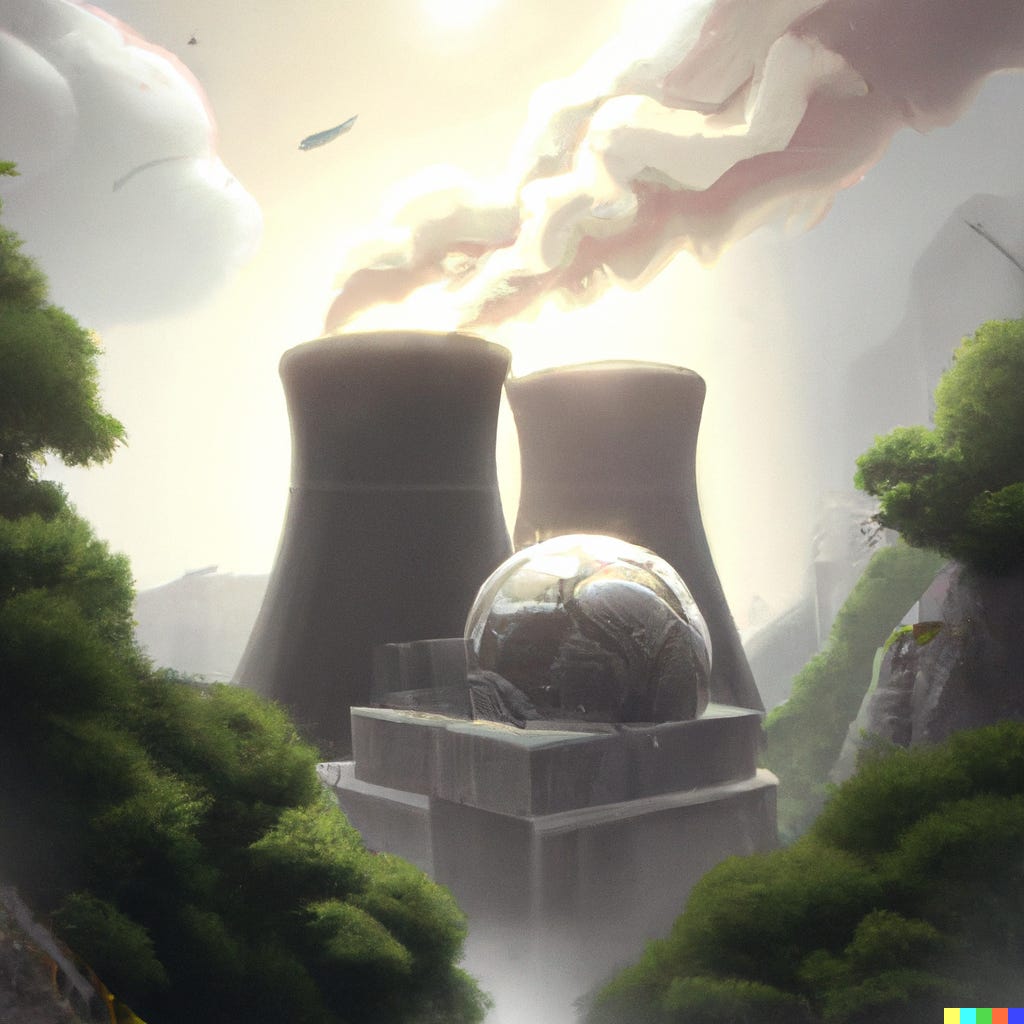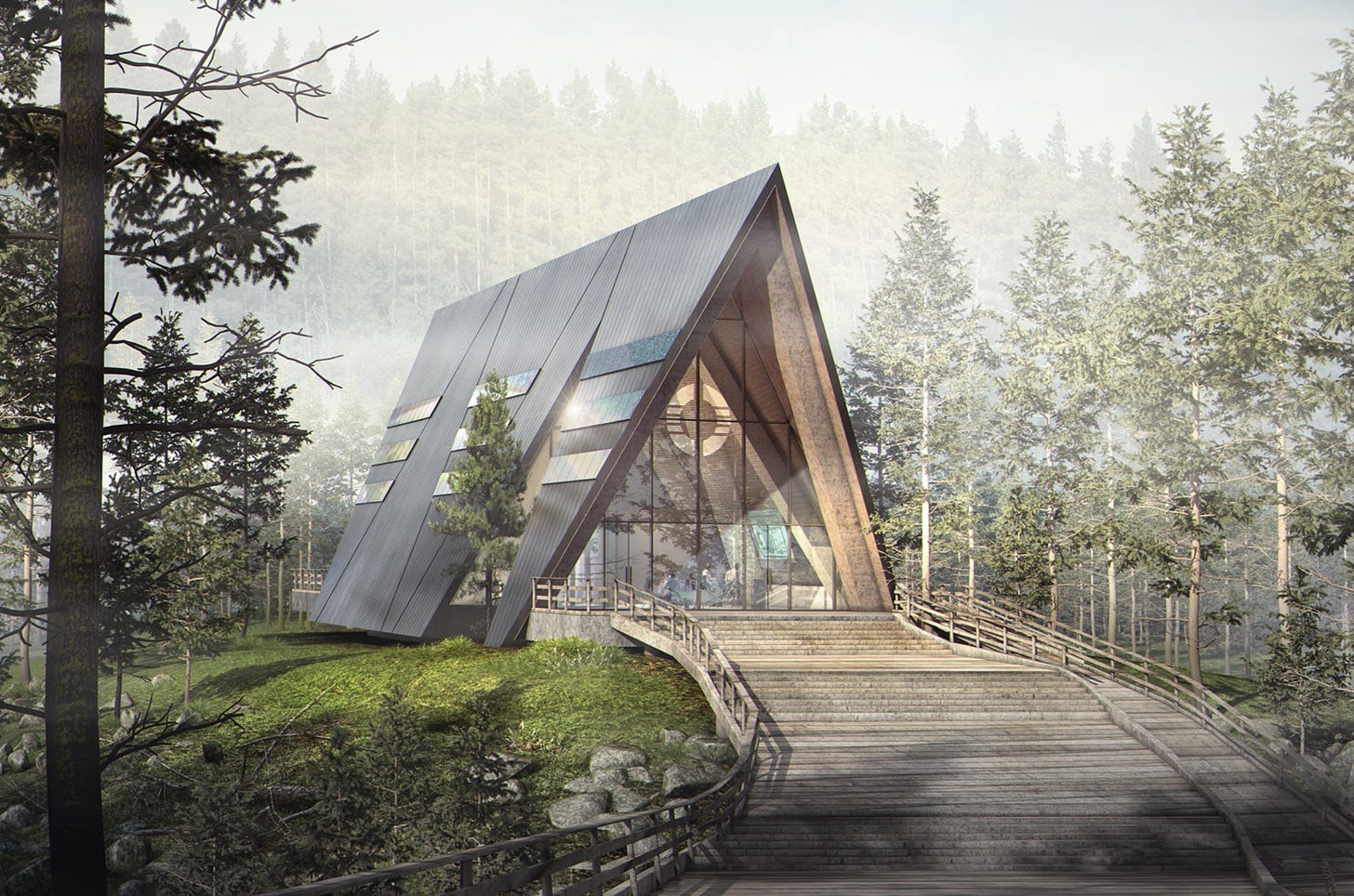Discovering the Secret of Ancient Nuclear Waste, a Forgotten Government Experiment Buried in Old Documents & the Quest to Produce Electricity Too Cheap to Meter
Podcast Ep. 21 with Caroline Cochran
How do you imagine a nuclear power plant to look like?
This is how Dall-E imagines a “nuclear power plant in the forest” looks like.
It’s an ugly monster with large cooling towers. That’s what people think nuclear power is like.
What if it looked like this?
This is Oklo’s design for advanced nuclear power plants.
In this week’s episode, I speak with Caroline Cochran, the COO and co-founder of Oklo Inc, joined by special guest Mac Davis, the CEO of Minicircle Inc.
“Could you couple it to desalination in like remote areas?
Yeah!
Could you pull carbon out of the air and turn it into jet pool?
Yeah!
Could you have your own self-sustaining island, could you mine cryptocurrency?
Yeah, and yeah!
If you have enough energy, you can have all the other resources needed for life, but also beyond just sustaining life, but like having a flourishing life.
The backbone of a great economy is having, access to energy.
You can have indoor greenhouses like bring fresh produce to Alaskans in the middle of winter or like north. You can do anything.”
(Caroline Cochran)
Nuclear energy is probably the best example of a stranded technology. It has the potential to give us a low-to-no-cost, low-to-no-carbon future economy - but it is held back by industry stagnation, political obstacles and regulatory strangulation.
In this episode, you'll learn about Oklo and Caroline's mission, and how so-called "powerhouses", micro-scale advanced fission power plants that are orders of magnitude safer than old nuclear power plans, can disrupt the energy industry.
The safety of these micro-plants is by design, using metal fuels. If the fuel expands through heat, the metal expands to shut down the reaction.
Caroline explains the process of convincing the Nuclear Regulatory Commission (NRC), a regulatory agency that has not licensed a single commercial nuclear power plant from application to start of operations since its beginnings in 1974.
While the process can be slow and expensive, Caroline also observes that their path has been one of much faster iteration and that nuclear is increasingly on a path to greater acceptance.
Oklo is on track to build the first NRC-licensed nuclear reactors, paving the way for a nuclear revival to produce cheap and clean electricity that is advancing humanity in the fight again climate change and accelerating technological progress.




